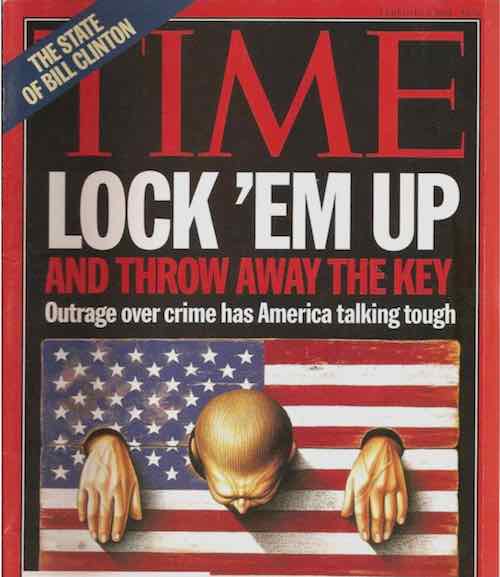We’ve Got To Be Smart On Crime, Not Hard Or Soft
The phrase “soft on crime” has a long history of being used to encourage the public to support the “lock them up and throw away the key” view of criminal justice…more accurately injustice.
The 1990s panic over youth and gang violence had us characterizing juvenile offenders as “superpredators” who were beyond redemption. The popular slogan “adult time for adult crime” echoed a “get-tough” approach for punishing kids. Recently, however, the U.S. Supreme Court abolished mandatory life sentences for minors. And policy makers have recommitted to the original philosophy of juvenile justice, prioritizing the needs of young offenders rather than what punishment is deserved.
The 1990s also saw the rapid spread of a penal policy patterned after a well-known baseball refrain — “three strikes and you’re out.” This metaphorical approach to sentencing felons helped nearly bankrupt many states, especially California where “three strikes” was most enthusiastically adopted.
Thousands upon thousands of Americans were taken prisoner in the “War on Drugs” declared in the early 1970s when crime rates soared. Having surrendered this misguided campaign, the nation is now looking more toward treatment for addicts than punishment, and releasing nonviolent drug offenders from prison. (USA Today)
Fearing being labeled as “soft on crime” conservative Democrats, aka neoliberals, fully embraced tough on crime policies. This allowed them to work with Republicans to pass bipartisan legislation.

This led to innocent men, mostly African-Americans, being incarcerated. Mass incarceration is now a major problem. Families were torn apart. Persons who served their time returned home to find they couldn’t get a job or housing. Recidivism was inevitable.
We screwed up…for decades.
St. Louis is a Democratic city, but mostly of old school neoliberal conservative Democrats. So the fact a majority of respondents to the non-scientific Sunday Poll think think our first black prosecutors has led to a sudden spike in violent crime shouldn’t surprise me.
Q: Agree or disagree: Violent crime is increasing in St. Louis City & County because our new prosecutors are soft on crime.
- Strongly agree: 14 [48.28%]
- Agree: 4 [13.79%]
- Somewhat agree: 2 [6.9%]
- Neither agree or disagree: 0 [0%]
- Somewhat disagree: 0 [0%]
- Disagree: 5 [17.24%]
- Strongly disagree: 4 [13.79%]
- Unsure/No Answer: 0 [0%]
Long-standing policies, not new prosecutors, are responsible for our violence. Smart solutions don’t look like the old, but now problematic, one. St. Louisans must learn to embrace change if we’re ever going to make progress in addressing our problems.
— Steve Patterson